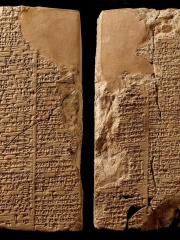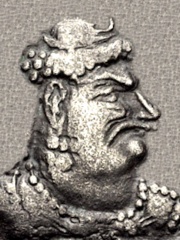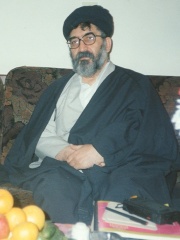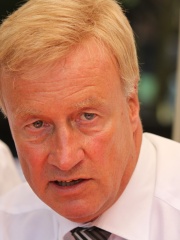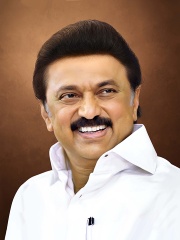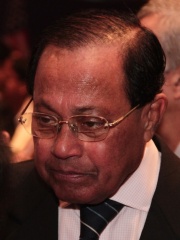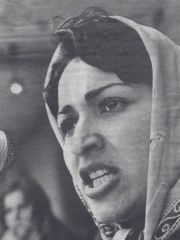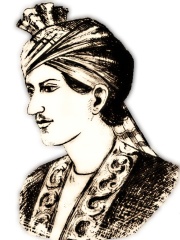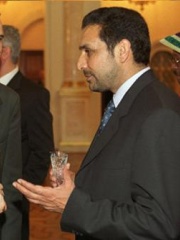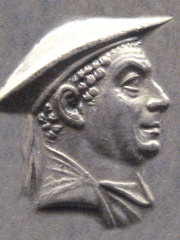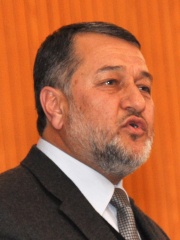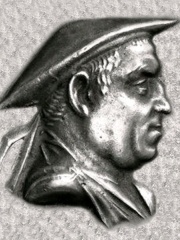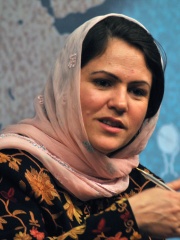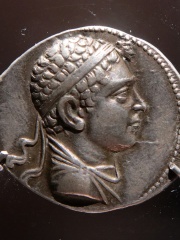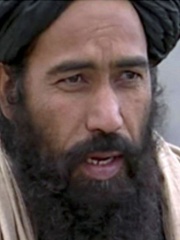Politician
Ismail of Ghazni
EN.WIKIPEDIA PAGE VIEWS (PV)

 Ismail of Ghazni
Ismail of Ghazni
His biography is available in 18 different languages on Wikipedia. Ismail of Ghazni is the 16,530th most popular politician (down from 15,317th in 2024), the 132nd most popular biography from Afghanistan (down from 124th in 2019) and the 93rd most popular Afghan Politician.
Memorability Metrics
Page views of Ismail of Ghazni by language
Among Politicians
Among politicians, Ismail of Ghazni ranks 16,530 out of 19,576. Before him are Denise Bronzetti, Liviu Dragnea, Erra-imitti, Mihirakula, Rui Duarte de Barros, and Evripidis Bakirtzis. After him are Andriy Parubiy, Hadi Khosroshahi, Gennady Novitsky, Ole von Beust, M. K. Stalin, and Moudud Ahmed.
Most Popular Politicians in Wikipedia
Go to all RankingsDenise Bronzetti
1972 - Present
HPI: 53.09
Rank: 16,531
Liviu Dragnea
1962 - Present
HPI: 53.09
Rank: 16,532
Erra-imitti
HPI: 53.09
Rank: 16,533
Mihirakula
500 - 533
HPI: 53.09
Rank: 16,534
Rui Duarte de Barros
1960 - Present
HPI: 53.08
Rank: 16,535
Evripidis Bakirtzis
1895 - 1947
HPI: 53.08
Rank: 16,536
Ismail of Ghazni
HPI: 53.08
Rank: 16,537
Andriy Parubiy
1971 - 2025
HPI: 53.08
Rank: 16,538
Hadi Khosroshahi
1939 - 2020
HPI: 53.07
Rank: 16,539
Gennady Novitsky
1949 - Present
HPI: 53.07
Rank: 16,540
Ole von Beust
1955 - Present
HPI: 53.07
Rank: 16,541
M. K. Stalin
1953 - Present
HPI: 53.07
Rank: 16,542
Moudud Ahmed
1940 - 2021
HPI: 53.07
Rank: 16,543
In Afghanistan
Among people born in Afghanistan, Ismail of Ghazni ranks 132 out of NaN. Before him are Meena Keshwar Kamal (1956), Hussain Hotak (null), Ahmad Zia Massoud (1956), Antimachus I (-200), Sitara Achakzai (1957), and Bismillah Khan Mohammadi (1961). After him are Apollodotus I (-300), Fawzia Koofi (1975), Mohammad Rabbani (1955), Euthydemus II (-200), Dadullah (1966), and Zabiullah Mujahid (1978).
Others born in Afghanistan
Go to all RankingsMeena Keshwar Kamal
SOCIAL ACTIVIST
1956 - 1987
HPI: 55.28
Rank: 126
Hussain Hotak
POLITICIAN
HPI: 54.60
Rank: 127
Ahmad Zia Massoud
POLITICIAN
1956 - Present
HPI: 54.58
Rank: 128
Antimachus I
POLITICIAN
200 BC - 160 BC
HPI: 54.19
Rank: 129
Sitara Achakzai
POLITICIAN
1957 - 2009
HPI: 54.12
Rank: 130
Bismillah Khan Mohammadi
POLITICIAN
1961 - Present
HPI: 53.26
Rank: 131
Ismail of Ghazni
POLITICIAN
HPI: 53.08
Rank: 132
Apollodotus I
POLITICIAN
300 BC - 200 BC
HPI: 53.05
Rank: 133
Fawzia Koofi
POLITICIAN
1975 - Present
HPI: 52.52
Rank: 134
Mohammad Rabbani
POLITICIAN
1955 - 2001
HPI: 52.50
Rank: 135
Euthydemus II
POLITICIAN
200 BC - 200 BC
HPI: 52.42
Rank: 136
Dadullah
POLITICIAN
1966 - 2007
HPI: 51.32
Rank: 137
Zabiullah Mujahid
POLITICIAN
1978 - Present
HPI: 50.91
Rank: 138
Among Politicians In Afghanistan
Among politicians born in Afghanistan, Ismail of Ghazni ranks 93. Before him are Abdul Aziz Hotak (1700), Hussain Hotak (null), Ahmad Zia Massoud (1956), Antimachus I (-200), Sitara Achakzai (1957), and Bismillah Khan Mohammadi (1961). After him are Apollodotus I (-300), Fawzia Koofi (1975), Mohammad Rabbani (1955), Euthydemus II (-200), Dadullah (1966), and Zabiullah Mujahid (1978).
Abdul Aziz Hotak
1700 - 1717
HPI: 55.85
Rank: 87
Hussain Hotak
HPI: 54.60
Rank: 88
Ahmad Zia Massoud
1956 - Present
HPI: 54.58
Rank: 89
Antimachus I
200 BC - 160 BC
HPI: 54.19
Rank: 90
Sitara Achakzai
1957 - 2009
HPI: 54.12
Rank: 91
Bismillah Khan Mohammadi
1961 - Present
HPI: 53.26
Rank: 92
Ismail of Ghazni
HPI: 53.08
Rank: 93
Apollodotus I
300 BC - 200 BC
HPI: 53.05
Rank: 94
Fawzia Koofi
1975 - Present
HPI: 52.52
Rank: 95
Mohammad Rabbani
1955 - 2001
HPI: 52.50
Rank: 96
Euthydemus II
200 BC - 200 BC
HPI: 52.42
Rank: 97
Dadullah
1966 - 2007
HPI: 51.32
Rank: 98
Zabiullah Mujahid
1978 - Present
HPI: 50.91
Rank: 99


